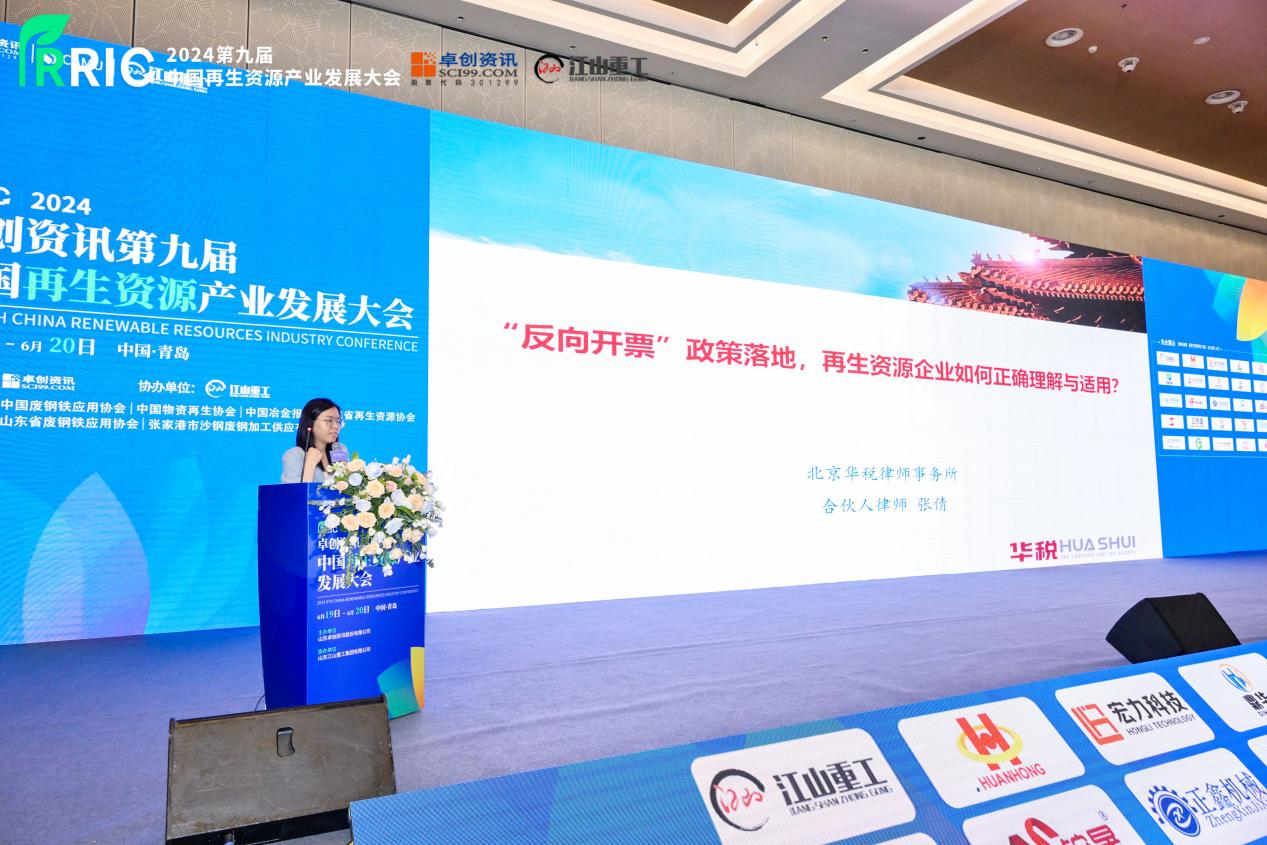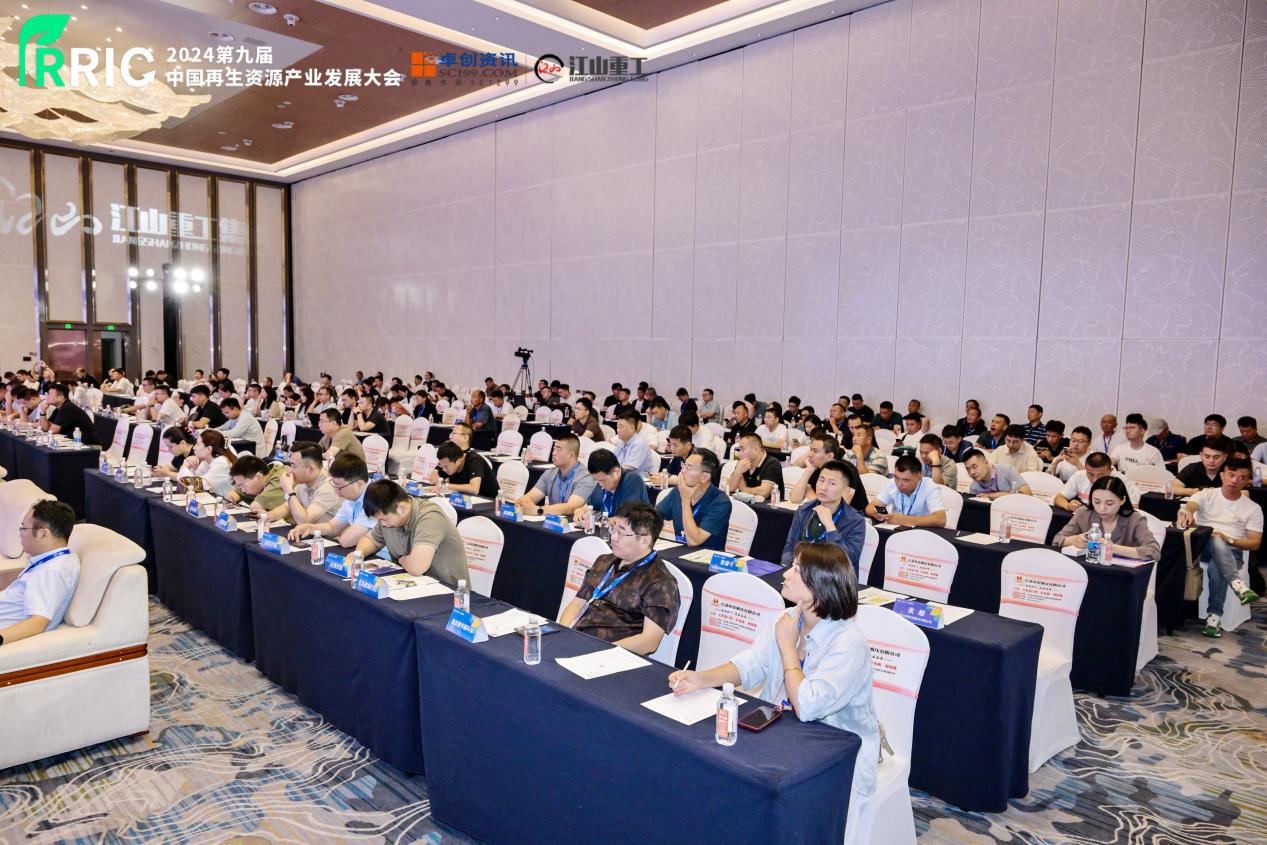Hwuason Law Firm Zhang Qian Invited to Give a Lecture on "Reverse Invoicing" to Enterprises in the Resources Recycling Industry
Under the new situation of tax administration, how to correctly understand and apply the "reverse invoicing" policy, how to combine the "reverse invoicing" policy, supporting the existing provisions of the simplified tax calculation to achieve a balance between tax compliance and economic benefits has become the focus of the majority of enterprises in the resources recycling industry. On June 19-20, the 9th China Renewable Resources Industry Development Conference organized by Shandong Zhuochuang Information Company Limited was held in Qingdao, Shandong Province. How to correctly understand and apply the policy of "reverse invoicing" for renewable resources enterprises", explaining the difficult tax compliance issues of renewable resources enterprises.

Zhang Qian firstly explained the application of the policy of "reverse invoicing" and answered in detail whether the sale of end-of-life products by individual households to recycling enterprises can be subject to "reverse invoicing", what conditions recycling enterprises have to meet before they can be " Reverse invoicing", the invoices issued by the reverse invoicing for VAT input deduction, as a proof of pre-tax deduction for enterprise income tax, and the tax supervision of the seller, etc., which clarified the prerequisites and bases of the application of the "reverse invoicing" policy for the participants.
Further, based on the tax regulation situation of resources recycling industry in recent years, and combined with the simplified tax calculation for recycling enterprises and the latest "reverse invoicing" policy, Ms. Zhang Qian shared the business model improvement issues of concern to the majority of recycling enterprises, and introduced in detail the differences in tax liabilities of sellers, recycling enterprises and production enterprises under different business models. She introduced in detail the tax burden of sellers, recycling enterprises and production enterprises under different business models, and analyzed in depth the key points to be considered by renewable resources enterprises in adjusting their business models. At the same time, Zhang Qian combined the "reverse invoicing" data retention requirements and the new trend of the development of renewable resources depository platform, explaining in detail what information needs to be retained by recycling enterprises and production enterprises in the signing of contracts, transportation of goods, delivery of goods, financial settlement, etc. to prove the authenticity of the business, and provide useful reference for renewable resources enterprises to strengthen their tax compliance. This will provide useful reference for renewable resources enterprises to strengthen their tax compliance.

Finally, Zhang Qian analyzes the tax-related risks faced by renewable resources recycling enterprises and production enterprises from the current regulatory trends, explains the risk of "reverse invoicing" under which recycling enterprises do not handle taxes and fees, and the risk of applying the fiscal refund policy under which recycling enterprises falsely invoicing and strictly investigating tax rebates in violation of the law, and further analyzes the tax-related risks faced by production enterprises, and finally discusses the tax-related criminal risks and challenges faced by renewable resources enterprises in light of the newly issued judicial interpretations of the two high courts. Finally, it discusses the tax-related criminal risks and challenges faced by renewable resources enterprises in light of the newly issued judicial interpretations of the two high courts.
In recent years, the tax policy of resources recycling industry has been changing constantly, and the business model of the industry enterprises has also been adjusting constantly. The majority of resources recycling enterprises should correctly understand and apply all kinds of policies, strengthen the awareness of tax risk management and tax compliance, and guard against tax-related risks.





